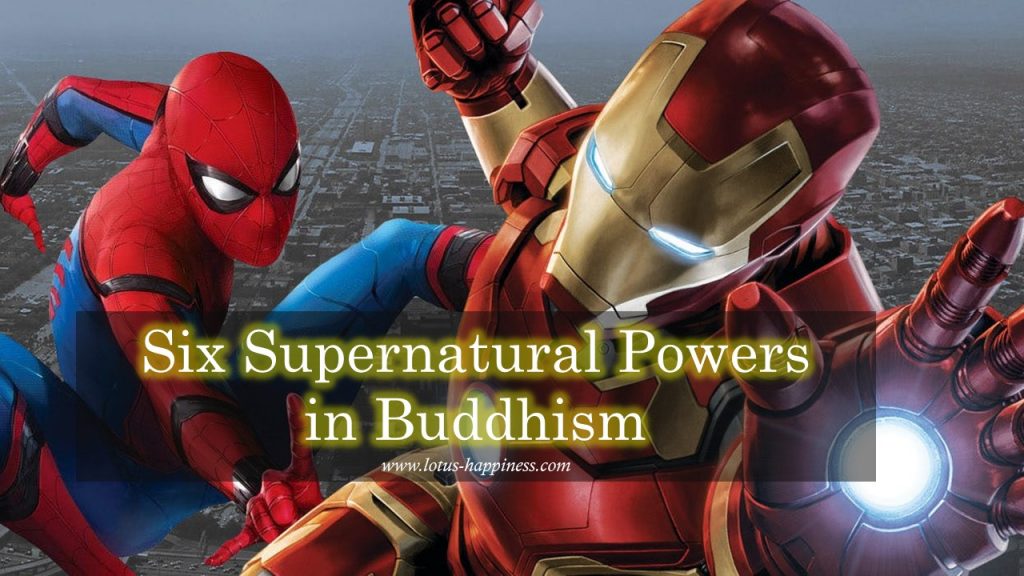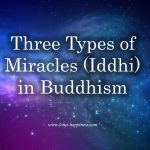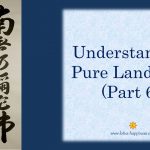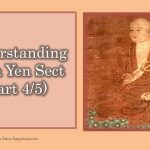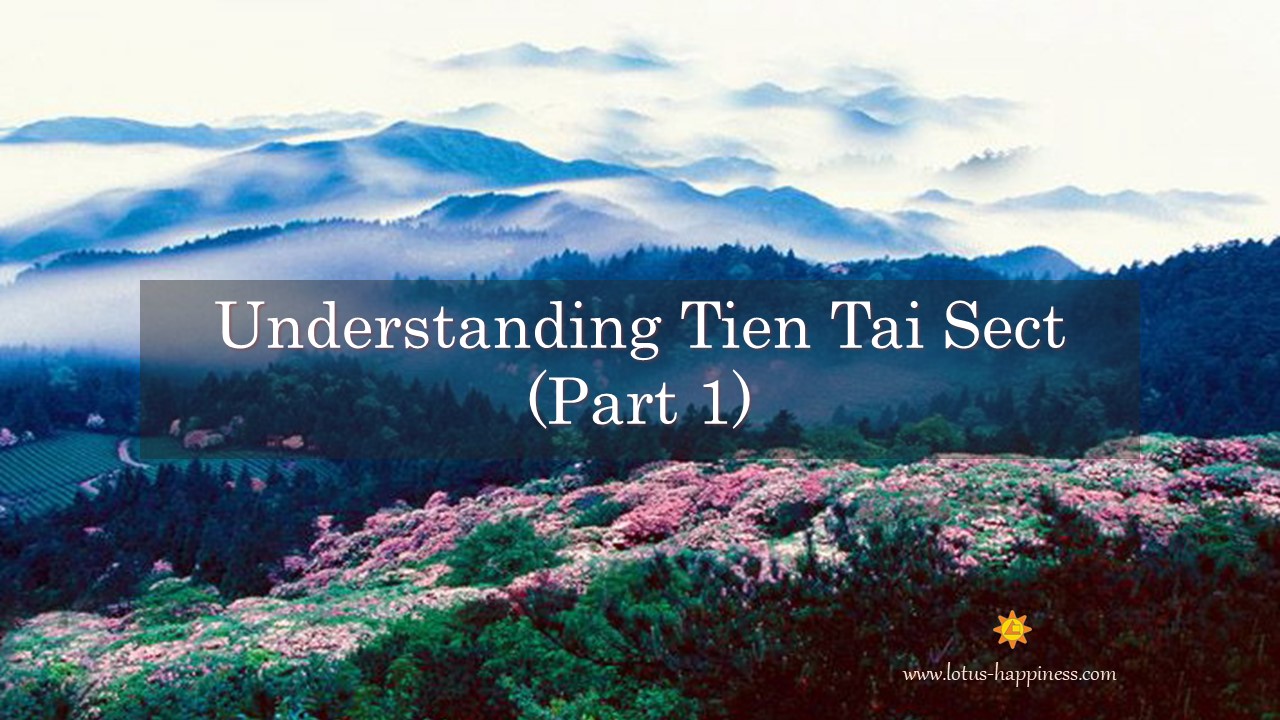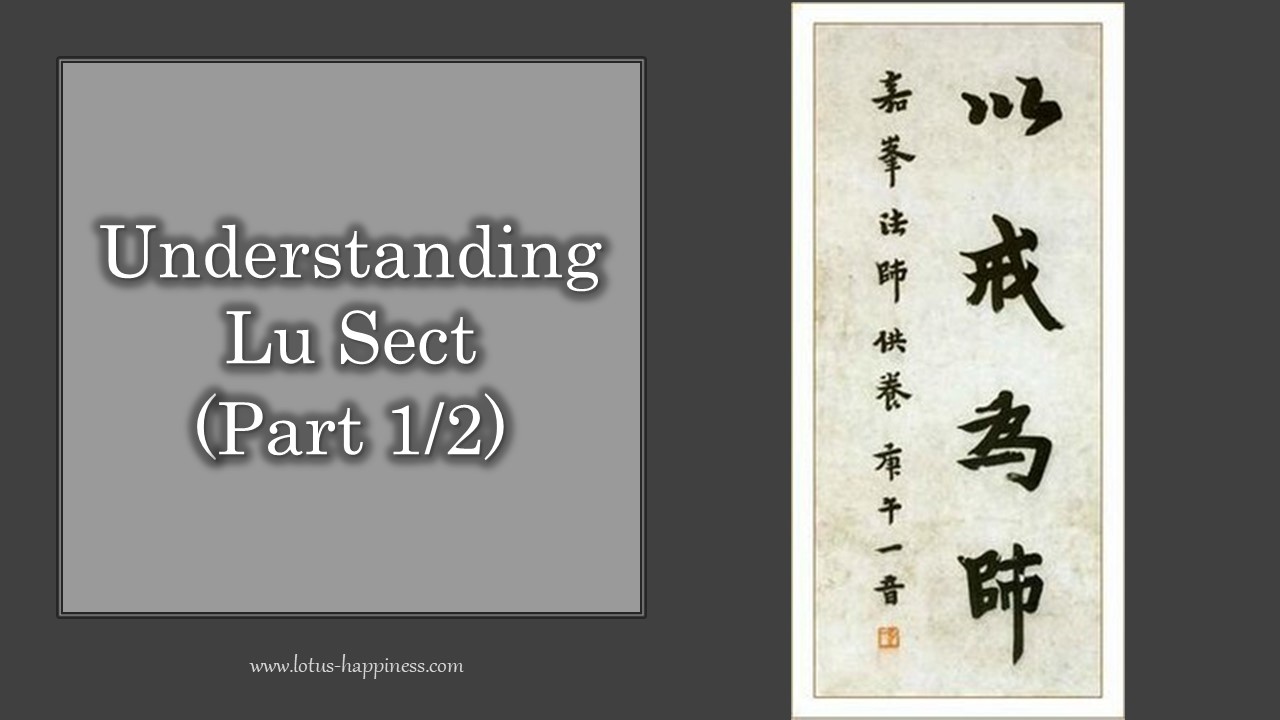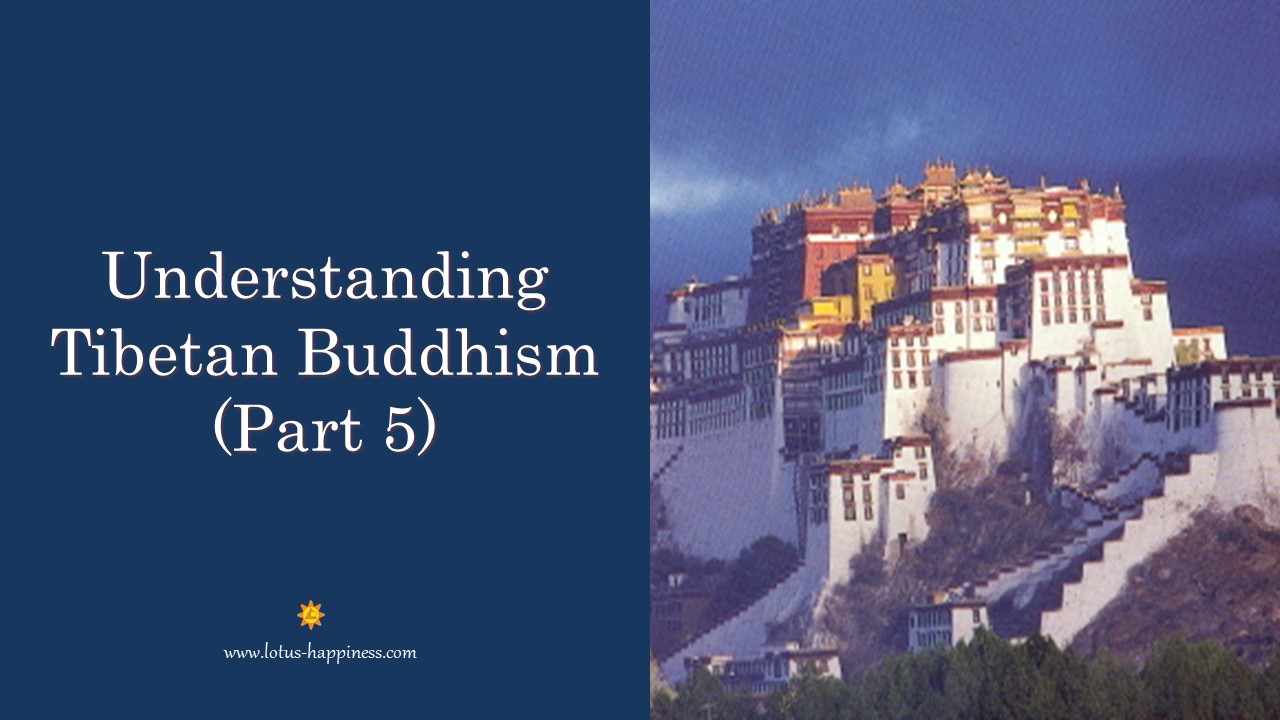Six Supernatural Powers in Buddhism
When it comes to understanding the Buddha-Dharma, the teaching of supernatural power is seldom the topic mentioned by most Dharma teachers. In fact, for those who value “scientific proof” as a “rational” way of validating the truth, supernatural power is something to be shunned of at all cost.
Nonetheless, supernatural power is not something so “supernatural” after all because the Buddha actually delivered a Dharma about it in Akankheyya Sutta of the Majjhima-Nikaya.
Supernatural power is actually a naturally occurring by-products of someone who has achieved mastery of the samadhi meditation (single-pointed focus of mental power). Among the six supernatural powers, the first five can be attained through samadhi meditation. Interestingly, the final and last supernatural power – Extinction of Suffering – can only be accomplished through complete internalization of the Buddha’s teachings of the Four Noble Truths and the Lotus Sutra. In other words, if you are able to change poison into medicine by transforming your sufferings into causes of happiness, you are already exhibiting the miracle of supernatural power in the modern world.
Here are the Six Supernatural Powers and how to acquire them:
#1 – The Power of Transformation (Iddhividha)
The Buddha said “If a monk should frame a wish as follows: “Let me exercise the various magical powers, let me being one become multiform., let me being multiform become one, let me become visible, become invisible, go without hindrance through walls, ramparts or mountains as if through air, let me rise and sink in the ground as if in the water, let me walk on the water as if on unyielding ground, let me travel cross-legged through the air liked a winged bird, let me touch and feel with my hand the moon and the sun mighty and powerful though they are, and let me go without my body even up to the Brahma world,” then must he be perfect in the precepts (Sila), bring his thoughts to a state of quiescence (Samadhi), practice diligently the trances (Jhana), attain to insight (Panna) and be frequenter to lonely places.”
#2 – The Power of Celestial Hearing (Dibbasota)
The Enlightened One expounded thus: “If a monk should frame a wish as follows: Let me hear with a divinely clear hearing, surpassing that of men, sounds both celestial and” human, far and near,” then he must be perfect in the precepts, bring his thoughts to a state of quiescence, practise diligently to the trances, attain to insight and be a frequenter to lonely places.
#3 – The Power of Discerning the Minds of Others (Cetopariya)
Omniscient One amplified thus: “If a monk should frame a wish as follows:- “Let me by my own heart investigate and discern the hearts of other beings, the hearts of other men, let me discern a passionate mind to be passionate, let me discern a mind free from passion to be free from passion, let me discern a mind full of hatred to be full of hatred, let me discern a mind free from hatred to be free from hatred, let me discern an infatuated mind to be infatuated, let me discern a mind free from infatuation to be free from infatuation, let me discern an intent mind to be intent, let me discern a wandering mind to be wandering, let me discern an exalted mind to be exalted, let me discern an unexalted mind to be unexalted, let me discern an inferior mind to be inferior, let me discern a superior mind to be superior, let me discern a concentrated mind to be concentrated, let me discern an unconcentrated mind to be unconcentrated, let me discern an emancipated mind to be emancipated, let me discern an unemancipated mind to be unemancipated” then must he be perfect in the precepts etc. (as mentioned above).
This power may be far superior to the highest form of modem thought-reading now largely practised all over the world.
#4 – The Power of Knowing Past Lives (Pubbenivasa)
The All-knowing One further elucidated thus: “If a monk should frame a wish as follows:- Let me call to my mind many previous states of existence, to wit one birth, two births, three births, four births, five births, ten births, twenty births, thirty births, forty births, fifty births, one hundred births, one thousand births, one hundred thousand births, many destructions of a world cycle (Kappa), many renovations of a world cycle, many destructions and many renovations of a world cycle: I lived in such a place, had such a name was of such a family, of such a caste, had such a maintenance, experienced such happiness and such miseries had such a length of life. Then I passed from that existence and was reborn in such a place. There also I had such a name, was of such a family, of such a caste, had such a maintenance, experienced such happiness and such miseries, had such a length of life. Then I passed from that existence and was reborn in such a place. There also I had such a name, was of such a family, of such a caste, had such a maintenance, experienced such happiness and such miseries, had such a length of life. Then I passed from that existence and was reborn in this existence.” Thus let me call to my mind many former states of existence and let me specifically characterise them,” then must he be perfect in the precepts etc.
This power is sorely attributable to the expounding of the “Theory of Rebirth” and ‘Samsara’ by the Buddha for all living beings in the entire Universe.
#5 – The Power of Celestial Vision (Dibba-Cakkhu)
The Blessed One also amplified thus: “If a monk should frame a wish as follows :- “Let me with a divinely clear vision, surpassing that of men, behold beings as they pass from one existence and spring up in another existence, let me discern the base and the noble, the handsome and the ugly, those in a higher state of existence and those in the lower state of existence undergoing the result of their deeds, so that I can know as follows:- ‘Alas! these beings, having been wicked of body, wicked of voice, wicked of mind, slanderers of noble people, wrong in their views, acquirers of false merit under wrong views, have arrived after the dissolution of the body, after death, at a place of punishment, a place of suffering, perdition, hell; or again, these other beings, having been righteous of body, righteous of voice, righteous of mind, not slanderers of noble people, right in their views, acquirers of merit under right views, have arrived, after the dissolution of the body, after death, at a place of happiness, a heavenly world.” Thus let me with a divinely clear vision, surpassing that of men, discern beings as they pass from one existence and spring up in another existence; let me discern the base and the noble, the handsome and the ugly, those in a higher state of existence and those in a lower state of existence undergoing the result of their deeds,” then he must be perfect in the precepts etc. This refers to the power of knowing the ‘Law of Karma’.
#6 – The Power of Extinction of Suffering (Asavakkhaya)
The Compassionate One further illustrated thus:
“If a monk should frame a wish as follows;- Let me through destruction of depravity, in the present life and in my own person, attain to freedom from depravity, to deliverance of the mind, to deliverance by wisdom, then he must be perfect in the precepts (Sila) and bring his thoughts to a state of quiescence, (Samadhi) practise diligently the trances (Jhana), attain to insight (Panna) and be a frequener of lonely places.”
It must, however, be understood that the Buddha did not consider every trance to be necessarily good, for it must aim at the right end. He, however, realised that there were those who devoted to yogic exercises to acquire supernatural powers. So the Buddha refined the practice by telling them that even such powers could be acquired only through the practice of righteousness and wisdom. ( Akankheyya Sutta, S. B. E. Vol. XI, ) Acquisition of supernatural powers does not confer any spiritual advantage. It was for this reason that the Buddha forbade his disciples to work miracles for display. Here it would not be out of place to mention that the yogic beliefs of Buddhism are not to be seen clearly in the Lamaism of Tibet. Craving for supernatural powers and taking delight therein after acquirement do not help us to free ourselves, from lust, hatred and ignorance. This has to be guarded against by those striving in the path of holiness for final liberation only and nothing else.
This Asavakkhaya is the most important of all being the knowledge or the way for complete elimination of both physical sufferings and mental defilements, thereby reaches the ultimate goal of life (Nibbana). To know its original meaning, the word ‘Asavakkhaya” is derived from Asava (A+Sru corresponding to Sanskrit Asrava. cp. Asrava) i.e. certain specified ideas which intoxicate the mind; and the word Khaya denotes extinction. Thus freedom from “Asavas” constitutes Arahatship and the fight for extinction of Asavas forms one of the main duties of a human being.
The four kinds of Asavas may briefly be enumerated as follows:-
(1) Kammasava – Sensuality (craving for sensual pleasures)
(2) Bhavasava – Rebirth (lust for life)
(3) Ditthisava – Speculation (Random mental view)
(4) Avijjasava – Ignorance (Without knowledge of what is right and what is wrong).
In short, if you practice the Eightfold Paths to transform sufferings into happiness, you are already displaying your supernatural power in your daily life.

